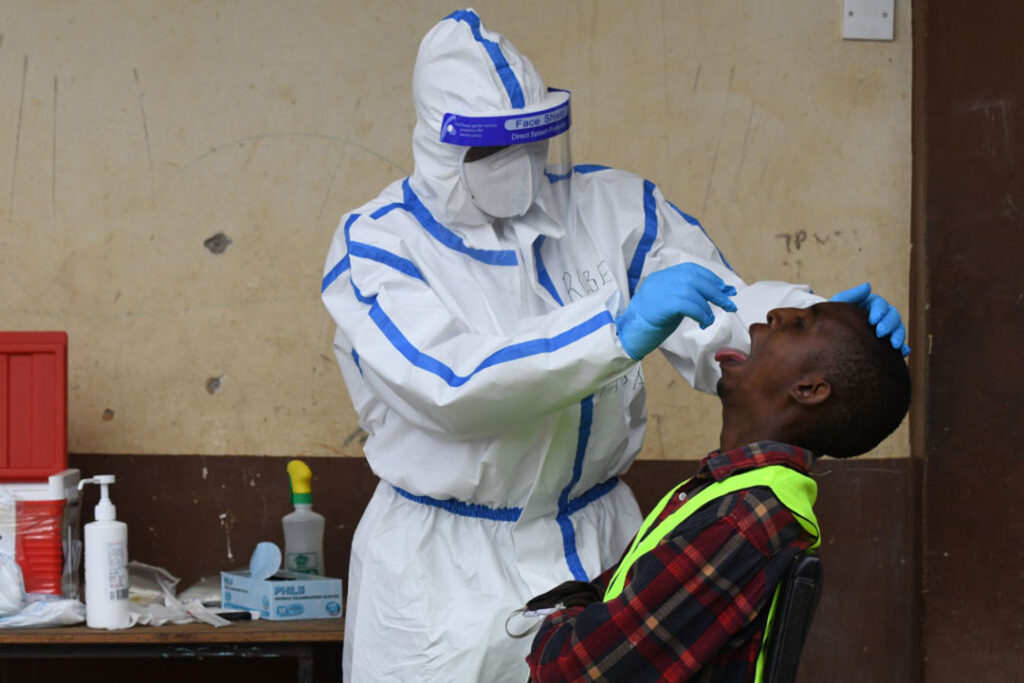ADF STAFF
Officials reported the first case of COVID-19 in Africa on February 14 in Egypt. Since then, the disease caused by the coronavirus has spread to every country on the continent.
Confirmed cases from the Africa Centres for Disease Control and Prevention (Africa CDC) more than doubled from 140,768 on May 30 to 404,267 on June 30, and doubled again to 846,648 on July 27, sounding alarms around the globe.
On Aug. 16, Africa had more than 1.1 million recorded cases and just over 25,600 deaths.
“There is no silver bullet at the moment, and there might never be,” World Health Organization (WHO) Director-General Tedros Adhanom Ghebreyesus said. “For now, stopping outbreaks comes down to the basics of public health and disease control — testing, isolating and treating patients, and tracing and quarantining their contacts.
“Do it all,” he urged.
Testing remains a significant hurdle, preventing experts from tracking how widely the disease has spread.
In April, Dr. John Nkengasong, director of the Africa CDC, said that only about 415,000 people had been tested, which amounts to about 325 tests per million people.
“If you don’t test, you don’t find,” he said in a news conference, according to the Daily Maverick. “And if you don’t test, you are blinded. You are like pilots on a plane without a radio system. If you don’t test, you are not ahead of the curve. You need to be ahead of the pandemic, not chasing the pandemic.
“If we don’t test, we don’t know how to open our economies. They are now locked down and … one of the indicators that will allow us to open the economies from the lockdown is the testing. To know who is infected and isolate them and then trace their contacts. That’s the importance of doing the testing as quickly as we can.”
The African Union on June 4 announced the launch of its Partnership to Accelerate COVID-19 Testing (PACT). At the time, the AU estimated about 2.4 million tests had been conducted among a population of about 1.2 billion.
The goal of the PACT initiative is 8,000 tests per million people.
“The doubling of confirmed COVID cases in July across African countries is alarming, but we are worried that this could be the tip of the iceberg,” Stacey Mearns, senior technical advisor of Emergency Health at nonprofit International Rescue Committee (IRC), said in a statement. “For all the countries where we work in the region, testing rates fall far below WHO guidelines.”
The WHO recommends at least one test per 1,000 people per week. Nigeria, the continent’s most populous nation, tests seven of every 350,000 people per week.
Mearns cited Somalia’s 32% positivity rate in July in contrast to Germany’s 3% as an indication that many cases are going undetected. This makes it nearly impossible to know the reach of the disease and to plan a response.
Another worrisome example is the higher percentage of infected health care workers in places such as Liberia (16%), Niger (16%) and Sierra Leone (15%) compared to just 3% in the U.S., according to IRC.
The alarm bells are growing louder.
“These countries need international support to increase their testing capacity, at least to the level of WHO guidelines,” Mearns said. “In the absence of a serious boost in financial support for crisis-affected and fragile states already on the front line of the pandemic, we risk an undetected and uncontrolled spread — and a response fighting with a hand tied behind its back.”

